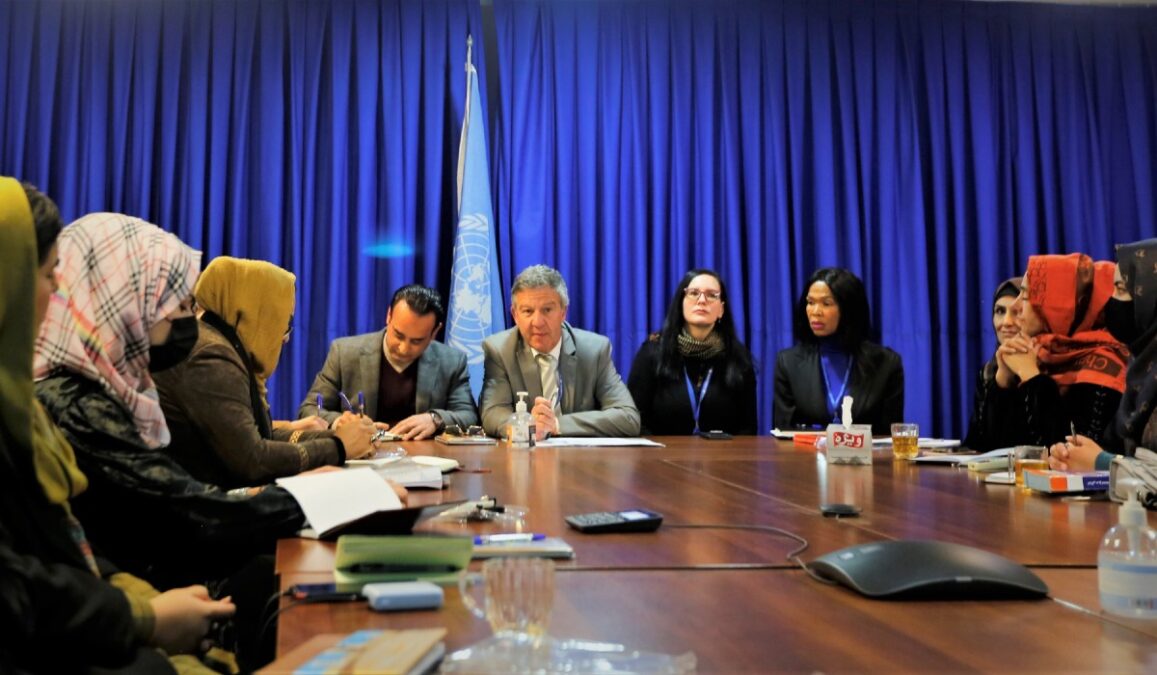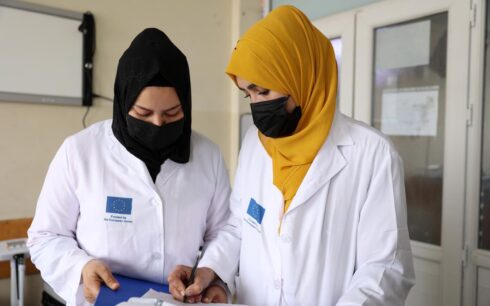Many women leaders in a series of events hosted by the UN office in Afghanistan, or UNAMA, this week, seeking dialogue with the Taliban to at least ensure their basic rights under the current circumstances in which they face increasing restrictions from the ruling group for their presence in society.
UNAMA says the events were held across the country about women’s urgent need for their meaningful participation in decision-making, protection from violence, and access to education, work and justice.
The Global Open Day events marked the 22nd anniversary of UN Security Council Resolution 1325 on Women, Peace, and Security, UNAMA says.
“Women in Kabul asked the United Nations to help open spaces for dialogue between them and Afghanistan’s de facto authorities, to help them increase economic and education opportunities, to restore their basic rights and to safeguard the achievements on gender empowerment,” UNAMA said in a statement on Friday, Nov. 18.
“We see the challenges you’re facing, and like you, we believe change is possible. We’re constantly reminding the authorities of the State’s obligations as a party to human rights and women’s rights conventions,” Markus Potzel, Deputy Special Representative for Afghanistan, said at an event with Afghan women in Kabul.
More than 100 women in several regions of the country and from different backgrounds, organizations and entities, engaged in wide-ranging discussions on the four pillars of UNSC Resolution 1325: participation; protection; prevention; and relief and recovery, the statement added.
The statement says that the discussions resulted in a list of recommendations to the international community, the authorities and to women themselves.
The recommendations included:
The UN should facilitate dialogue between women and the authorities;
The UN should establish a communication mechanism that would allow women to quickly bring issues to the attention of the authorities;
The UN and the international community should continue to press authorities on the need for the respect of rights of women;
The Taliban as well as the UN should intensify efforts toward women entrepreneurship and economic empowerment, capacity building and education;
Prevention of cases of violence against women and accountability for such cases
And for women, cultural practices which cause harm and perpetuate gender inequality and oppression should be abandoned.
In Kunduz, women called on the Taliban to follow the example of other Muslim countries that allow education for women and girls of all ages.
In Herat, UNAMA says, women highlighted that before Afghanistan’s political changes in August 2021, women had been active in peace education in the western city and remote districts working for the prevention of violence within tribes, communities and families operating under a protective legal framework and in cooperation with dedicated institutions to facilitate women’s engagement.
The women stressed that in the current context, “gender discrimination against women and their exclusion from decision-making mechanisms is systematic.”
The UN launched the Global Open Day initiative in 2010 to review the implementation of Resolution 1325 on Women, Peace and Security. Held worldwide, Global Open Days allow women to discuss their efforts to promote peace and security and propose changes to policy and legislation.
Resolution 1325 recognized that women and girls are disproportionately affected by conflict and emphasizes the need to increase their role in conflict prevention and resolution.
The meetings come as women in Afghanistan have been facing new restrictions by the Taliban over the past two weeks. Meanwhile, at least three women’s rights activists have been arrested by the Taliban in the past two weeks.





